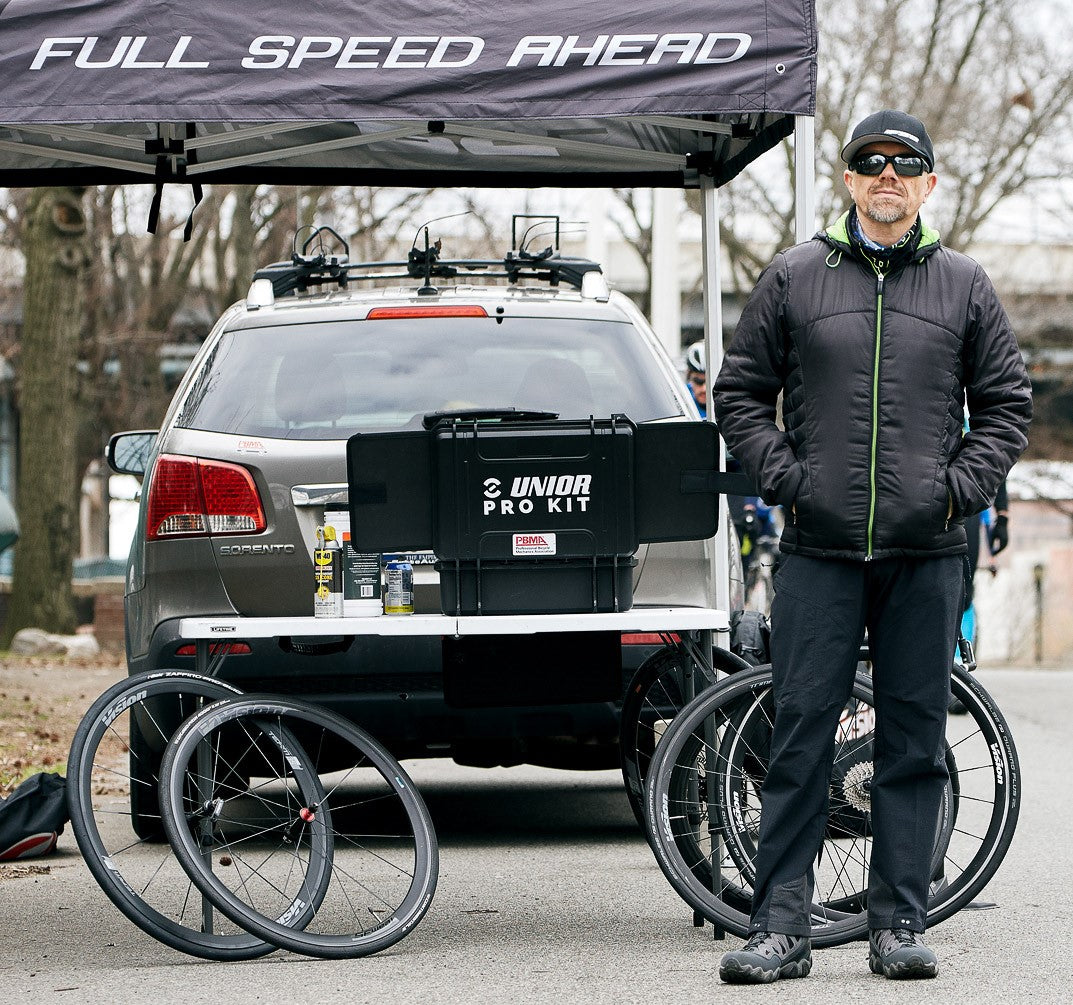
Ambassador Spotlight - Per Rosenkvist
Share
Per Rosenkvist has two passions in life: the care of critical patients and bike maintenance. Life before Covid-19 saw the Unior brand ambassador balance his job as an ICU nurse practitioner with professional bike maintenance on the side. Since mid-March, Rosenkvist's efforts have been 100 percent focused on the fight against the virus.
"Before COVID-19, I'd work 37 and a half hours. I'd see patients, then go home. Then on the weekends, I would go to bike events. That was a regular day. Then all hell broke loose. I work from 6 a.m. to 10 p.m., five or six days a week. It's nonstop. Patients are everywhere, and they are the sickest patients you can imagine. They all need to be on ventilators. They all need 8-10 different drips, all dialysis."
Rosenkvist's northern New Jersey hospital has the second-highest admission of Covid-19 patients in the state. He's worked in critical care for more than 20 years but says he's never seen this kind of increase in patients before - which is more than 300 percent. Patient confidentiality laws don't allow Rosenkvist to speak about details, but he can say this.
"Whatever you saw out of Italy is how it looks. I have patients everywhere," Rosenkvist said. "That's why I like being a race mechanic. It's the same things we do in critical care. You have to think fast and under pressure. And people depend on what you're doing and that you do it fast. It's more closely related than people think. It's about that attention to detail."
Having two high-pressure jobs that require 100 percent concentration for long periods ultimately can be draining. However, Rosenkvist has tips he's developed over time to cope.
"We're used to working on the fly, and you have to take breaks whenever you can," he said. "I do my best to remove myself from the situation to recharge. When I drive to and from work, I listen to music and enjoy the scenery. That's my relaxation technique. Also, when I'm working, I will leave the ICU to go into a quiet room for 5-10 minutes. That's a good technique. That's a technique you can use as a mechanic too, take a break for five minutes, relax and come back clear-headed."
Rosenkvist said he'd like more than anything to get back to the balance of being a bike mechanic and working at the ICU. But for now, he's determined to continue helping how he can during this unparalleled health crisis. In the end, both jobs produce similar rewards for Rosenkvist.
"You're at the service of others, but really for me, if you can get the person back on their bike and in the race, or even win, that's a great joy," he said. "That's the same you have in critical care. You help save a life, and they walk out alive. You're helping people feel good, which in turn makes you feel good."
